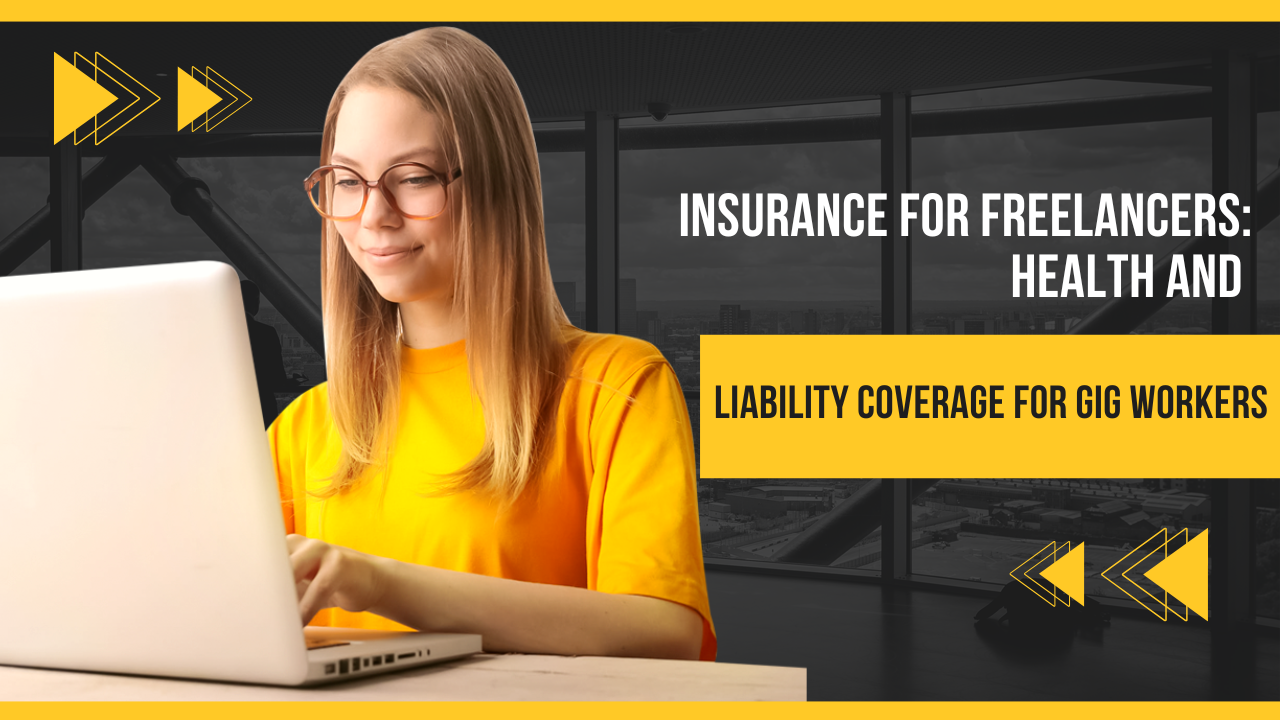Health and Liability Coverage for Gig Workers Freelancing gives you freedom—setting your own hours, working from anywhere, and choosing your clients. But one thing it doesn’t automatically come with? Insurance. Whether you’re a graphic designer, photographer, consultant, or ride-share driver, freelancers and gig workers need protection too.
Without an employer-backed benefits package, you’re on your own when it comes to health and liability insurance. But don’t worry—there are smart, affordable options tailored just for independent workers like you.
🏥 Health Insurance Options for Freelancers
Health insurance is one of the most essential types of coverage for freelancers. A single accident or medical emergency could set you back thousands of dollars.
1. Marketplace Plans (ACA)
Thanks to the Affordable Care Act (ACA), you can shop for coverage at HealthCare.gov. Depending on your income, you may qualify for subsidies that significantly lower your premiums.
Pros:
- Comprehensive coverage (mental health, prescriptions, preventive care)
- Can’t be denied for pre-existing conditions
Cons:
- Can be expensive without subsidies
- Limited enrollment periods
2. Freelancer/Professional Association Plans
Groups like the Freelancers Union, Writers Guild, or industry-specific networks often offer group insurance plans or access to brokers.
Pro Tip: Check if your industry has a national or regional association offering group coverage discounts.
3. Short-Term Health Insurance
If you’re between gigs or missed open enrollment, these temporary plans offer basic coverage for a few months.
Warning: They usually don’t cover pre-existing conditions and may have high deductibles.
🛡️ Liability Insurance for Gig Workers
Freelancers also need to protect themselves from legal claims, accidents, or client disputes. That’s where liability insurance comes in.
1. General Liability Insurance
Covers bodily injury or property damage that might occur during your work (especially for photographers, fitness instructors, or on-site contractors).
Example: A client trips over your camera bag and breaks a wrist—you’re covered.
2. Professional Liability (Errors & Omissions)
This protects you from claims that your work caused a financial loss or didn’t meet expectations. Crucial for consultants, designers, writers, and developers.
Example: A client sues because your marketing strategy didn’t deliver results—E&O can cover legal fees.
3. Cyber Liability Insurance
If you handle sensitive client data, cyber insurance helps cover costs from data breaches, hacks, or accidental leaks.
👷 Specialized Coverage for Gig Platforms
Some gig platforms (like Uber, TaskRabbit, or Upwork) offer limited insurance, such as accident or liability coverage. But it’s often basic and only applies when you’re actively using the platform.
Freelancers working across multiple clients and platforms should still invest in personal policies to avoid gaps.
📋 Final Thoughts
If you’re self-employed, insurance isn’t optional—it’s a smart investment in your future. Whether you’re navigating unpredictable income, client disputes, or medical emergencies, having the right health and liability coverage ensures you stay protected and professional.
Being your own boss is empowering. Being an insured boss? That’s next level.
